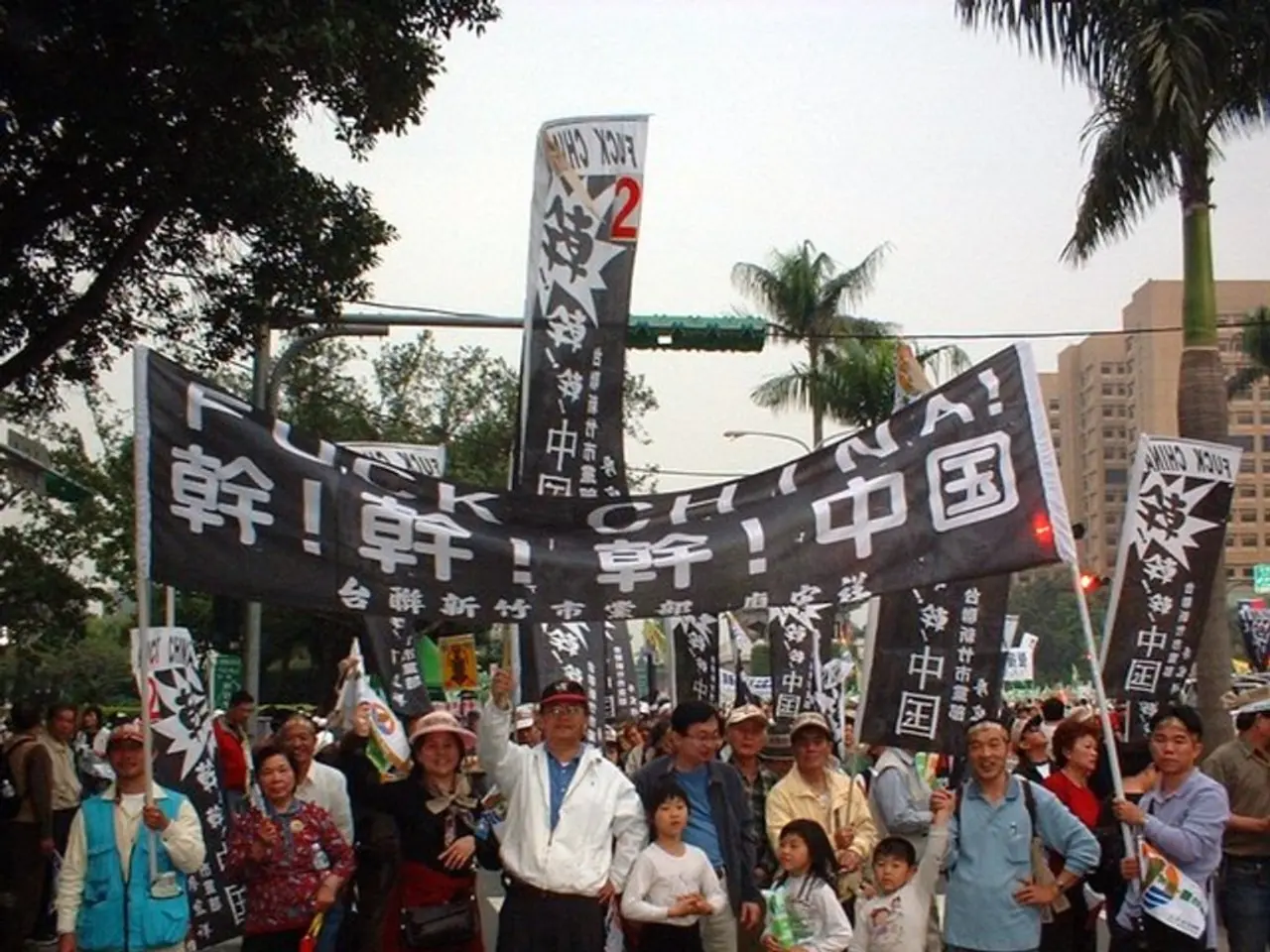Asia-Pacific Biotech Markets Gain Favor Among Investors Amid Escalating US-China Tensions
In the dynamic world of biotech, the Asia-Pacific region is making a significant mark, thanks to strategic investments, supportive government policies, and robust infrastructure.
China continues to dominate investment flows in the regional biotech sector, accounting for over 75% of venture capital and private equity flows since 2019. This dominance is due in part to China's large market demand and significant investments from global pharmaceutical giants, including Pfizer and AstraZeneca, which have established local R&D centers. China is also expanding its biotechnology manufacturing capacity and fostering next-generation biotech approaches [1][2][5].
However, Singapore is quickly gaining appeal. Due to its political neutrality, strong intellectual property protection, legal transparency, regulatory alignment, and commitment to innovation, Singapore is becoming a beacon for major pharmaceutical companies, top-tier scientific talent, and biotech firms. The country's Tech.Pass and Tech@SG programs aim to attract founders and technical experts from around the world [1][2]. Advanced infrastructure developments like the Biopolis cluster and Tuas Biomedical Park anchor Singapore as a launchpad for next-generation therapies and a regional R&D hub for biotech growth.
One of Singapore's most significant achievements is the anti-dengue virus antibody developed through a collaboration between A*STAR, Chugai Pharmabody Research (CPR), and the National University of Singapore (NUS) [1]. This success underscores Singapore's pro-innovation environment, which sets the stage for early scientific discoveries to translate into clinically and commercially viable assets.
South Korea, another key player, has developed a robust biotechnology infrastructure and is a global leader in biosimilars exports. The government supports innovation through policy reforms and investments, positioning South Korea as a competitive biotech hub globally [3][4]. South Korea's "Top-Tier Talent Visa" offers expedited residency, tax exemptions, and family benefits to attract world-class talent.
India, too, is investing in its biotech sector. The country promotes indigenous biosimilar production through national missions initiated by the Department of Biotechnology. India also invests in AI-driven drug discovery platforms and supports digital health integration in pharma. However, India faces pricing pressures controlled by government policies aiming for affordability, which shape industry focus toward specialty medicines and innovation niches [3].
Collectively, these countries support the growth of the Asia-Pacific biotech sector through a mix of strategic capital injections, infrastructure development, regulatory reforms, IP protections, fostering of R&D ecosystems, and adoption of advanced technologies like AI and gene therapies. This collective effort is enabling the region to emerge strongly as a global biotech innovation hub [1][2][3][4].
Flagship Pioneering, the venture creation firm behind Moderna, has launched its regional hub in Singapore with A*STAR, jointly committing up to S$100 million to advance biotech and healthtech innovation in APAC. EDBI, the investment arm of SG Growth Capital, remains dedicated to advancing the biotech industry in the APAC region from Singapore, supporting the next generation of innovators and entrepreneurs.
Public institutions across the Asia-Pacific region are playing a critical role in closing early-stage R&D funding gaps. South Korea, Japan, and India have committed significant funds to support biotech projects. Singapore offers a world-class biotech innovation ecosystem, built on strategic investment, supportive government policies, and robust infrastructure, with a focus on AI and research talent development in the upcoming RIE2030 strategy.
Several Asia-Pacific governments have implemented targeted programs to provide critical capital and infrastructure for early-stage research and development, attracting more private capital investments. The expanded Startup SG Equity program in Singapore exceeds S$1 billion in co-investment capital.
High-value licensing deals exceeding US$50 million in China have surged nearly sixfold since 2020, but persistent geopolitical tensions and policy uncertainty are diversifying capital flows into emerging hubs like Singapore and South Korea. A new report from Bain & Company, in partnership with several organizations, states that markets in the Asia-Pacific region are rapidly becoming credible innovation hubs for biotech, due to geopolitical tensions and significant U.S. research funding cuts [1].
In conclusion, the Asia-Pacific region is poised to make a significant impact on the global biotech industry. With strategic investments, supportive government policies, and robust infrastructure, countries like Singapore, China, South Korea, and India are fostering a dynamic and innovative biotech ecosystem that is attracting global attention.
References: [1] Bain & Company. (n.d.). Asia-Pacific Biotech: A New Frontier. Bain & Company. [2] The Straits Times. (2021, August 18). Asia-Pacific to become a global biotech innovation hub, says Bain & Company. The Straits Times. [3] The Economic Times. (2021, May 21). Asia-Pacific biotech sector to grow with investments, policy reforms. The Economic Times. [4] Korea Biotech Industry Organization. (n.d.). South Korea's Biotech Industry. Korea Biotech Industry Organization. [5] South China Morning Post. (2021, June 24). China's biotech sector is booming – but can it compete with the US? South China Morning Post.
- The strategy of investing in the Asia-Pacific region's biotech sector by private equity firms, such as Flagship Pioneering, is aimed at fostering growth in the healthtech industry.
- The enterprise of biotech in Singapore is characterized by a focus on AI and research talent development, as outlined in the upcoming RIE2030 strategy.
- Beyond China, countries like Singapore and South Korea are attracting private equity investments due to geopolitical tensions and policy uncertainties that are diversifying capital flows.
- Innovation in biotech is not limited to large pharmaceutical companies; public institutions across the Asia-Pacific region are playing a crucial role in funding early-stage R&D projects.
- The media is reporting on the significant growth of the biotech sector in the Asia-Pacific region, positioning it as a potential powerhouse in global healthcare and sports technology.







